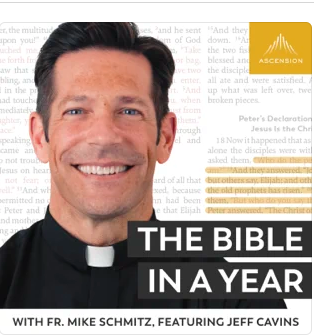
THE TEN COMMANDMENTS
1. I AM THE LORD THY GOD: THOU SHALT NOT HAVE STRANGE GODS BEFORE ME.
COMMANDS: faith, hope, love, and worship of God; reverence for holy things; prayer.
FORBIDS: idolatry; superstition; spiritism; tempting God; sacrilege; attendance at false worship.
2. THOU SHALL NOT TAKE THE NAME OF THE LORD THY GOD IN VAIN.
COMMANDS: reverence in speaking about God and holy things; the keeping of oaths and vows.
FORBIDS: blasphemy; the irreverent use of God’s name; speaking disrespectfully of holy things; false oaths and the breaking of vows.
3. KEEP THE SABBATH HOLY.
COMMANDS: going to church on Sundays and holy days of obligation.
FORBIDS: missing church through one’s own fault; unnecessary servile work on Sunday and holy days of obligation.
4. HONOUR THY FATHER AND THY MOTHER.
COMMANDS: love; respect; obedience on the part of children; care on the part of parents for the spiritual and temporal welfare of their children; obedience to civil and religious superiors.
FORBIDS: hatred of parents and superiors; disrespect; disobedience.
5. THOU SHALT NOT KILL.
COMMANDS: safeguarding of one’s own life and bodily welfare and that of others.
FORBIDS: unjust killing; suicide; abortion; sterilization; dueling; endangering life and limb of self or others.
6. THOU SHALT NOT COMMIT ADULTERY.
COMMANDS: chastity in word and deed.
FORBIDS: obscene speech; impure actions alone or with others.
7. THOU SHALT NOT STEAL.
COMMANDS: respect for the property of rights and others; the paying of just debts; paying just wages to employees; integrity in public office.
FORBIDS: theft; damage to the property of others; not paying just debts; not returning found or borrowed articles; giving unjust measure or weight in selling; not paying just wages; bribery; graft; cheating; fraud; accepting stolen property; not giving an honest day’s work for wages received; breach of contract.
8. THOU SHALT NOT BEAR FALSE WITNESS AGAINST THY NEIGHBOR.
COMMANDS: truthfulness; respect for the good name of others; the observance of secrecy when required.
FORBIDS: lying; injury to the good name of others; slander; talebearing; rash judgment; contemptuous speech and the violation of secrecy.
9. THOU SHALT NOT COVET THY NEIGHBOR’S WIFE.
COMMANDS: purity in thought.
FORBIDS: wilful impure thought and desires.
10. THOU SHALT NOT COVET THY NEIGHBOR’S GOODS.
COMMANDS: respect for the rights of others.
FORBIDS: the desire to take, to keep, or damage the property of others.
UPLOADED BY MICHAEL G HAINS SYSOP CATHOLICS’ RESOURCE NETWORK COMPUSERVE ID 76711,1340




